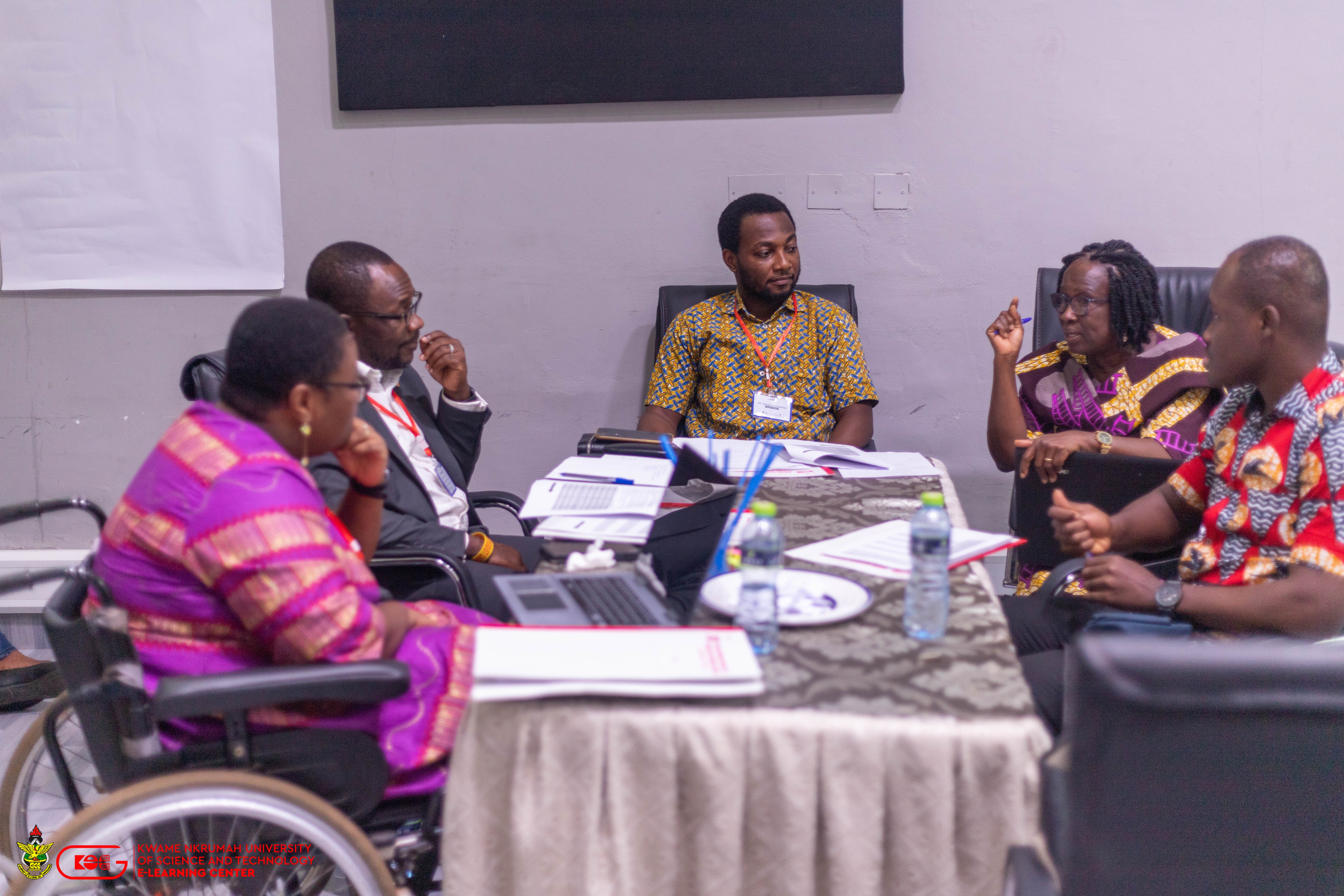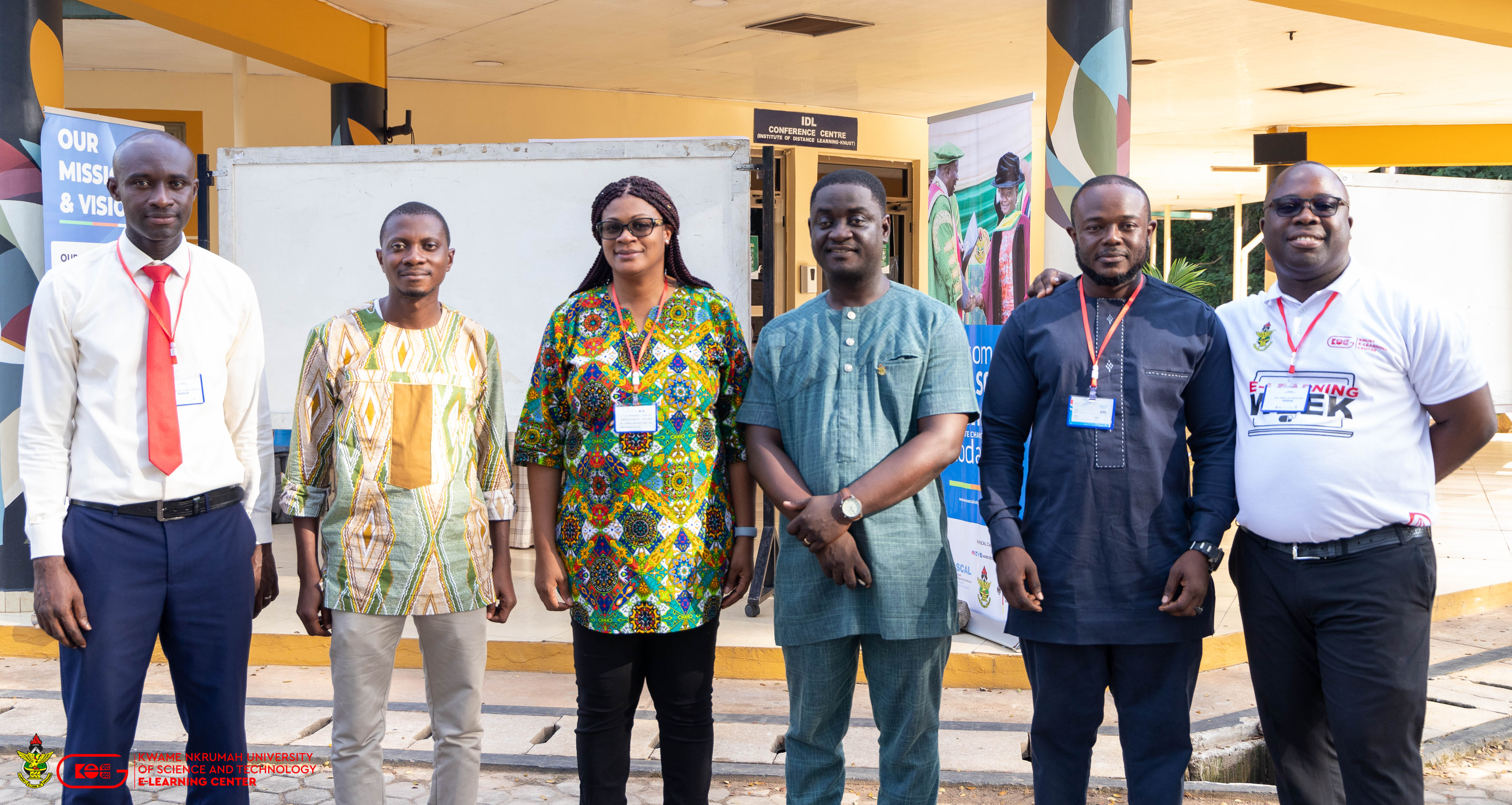KNUST e-learning centre holds training for faculty under the Partnership for Enhanced Blended Learning Project (PEBL)

For institutions that are facing staffing challenges and the growing inadequacy of space and infrastructure, blended learning can be a saviour. Blended learning is a combination of in-person and online learning. Through expert-led training, cooperation, and the creation of credit-bearing, blended courses, the Partnership for Enhanced Blended Learning, West Africa assists professors and students at 12 universities in Ghana and Nigeria in developing a sustainable capacity for blended learning.

The Association of Commonwealth Universities as the lead agency receives support from six (6) technical partners - the Commonwealth of Learning (Canada), Staff and Educational Development Association (UK), National Open University of Nigeria, University of New South Wales (UNSW) and the Ghana Tertiary Education Commission (GTEC) - including the main partner; the Australian Department of Foreign Affairs and Trade (DFAT) in the implementation of the project.

The Kwame Nkrumah University of Science and Technology through the E-Learning Centre is a participating institution in the project. As part of the capacity-building for promoting blended learning, the Centre under the PEBL project has organized a two-day workshop for the staff of the University. The two-day program was held on Monday, the 28th of November and Tuesday, the 29th of November, 2022 at the Amoonor-Neizer Conference Centre. Participants were drawn from various departments and directorates of the University. In attendance were also instructors from other participating institutions such as the Kumasi Technical University (KTU), the University of Energy and Renewable Natural Resources (UENR) and All Nations University.
The first day of the workshop began with opening remarks from the Director of the KNUST E-Learning Centre, Prof. Eric Appau Asante, who also doubles as the PEBL Coordinator at KNUST. He congratulated participants for being among those selected to undertake the training. He was emphatic on the fact that the program was only to horn the skills of lecturers as they have already been practising and using some of the concepts that would be taught during the sessions. The workshop participants, as noted by Prof. Asante, were strategically selected from various disciplines to highlight how blended learning can be implemented no matter what your course content is. He took the opportunity to introduce his co-coordinators Drs. Justice Enu and Obed Nii Bhroom. After the Director's welcome address was a keynote speech by Sara Calamassi, Association of Commonwealth Universities (ACU) Project Officer, and an introductory session facilitated by co-coordinators Drs. Bhroom and Justice Enu. The workshop sessions began in earnest when participants entered their breakout sessions of two groups. The groups were led in storyboarding activities, reflections and discussions. Some of the major topics treated on day one include; supporting technologies, Values and Inclusivity, How People Learn, and Quality Assurance. Day two of the Training began straight with breakout sessions where major topics treated were Learning outcomes, Learning activities/E-tivities & Supporting Digital Technologies, Assessment tasks and Constructive alignments. Facilitators for both days were Dr. Carlene Kyeremeh, Dr. Samuel Opoku, Dr. Leo Tattrah and Dr. Justice Enu.

Participants were delighted to have been part of the workshop and noted that the ideas shared even from colleagues were profound. They expressed their appreciation to the E-Learning Centre and admonished the Centre to continue to be a good member of the Partnership for Enhanced and Blended Learning (PEBL) so that staff of the University and sister institutions continue to benefit from the project.
---
Published:1st December, 2022 Source: KNUST E-Learning Centre
